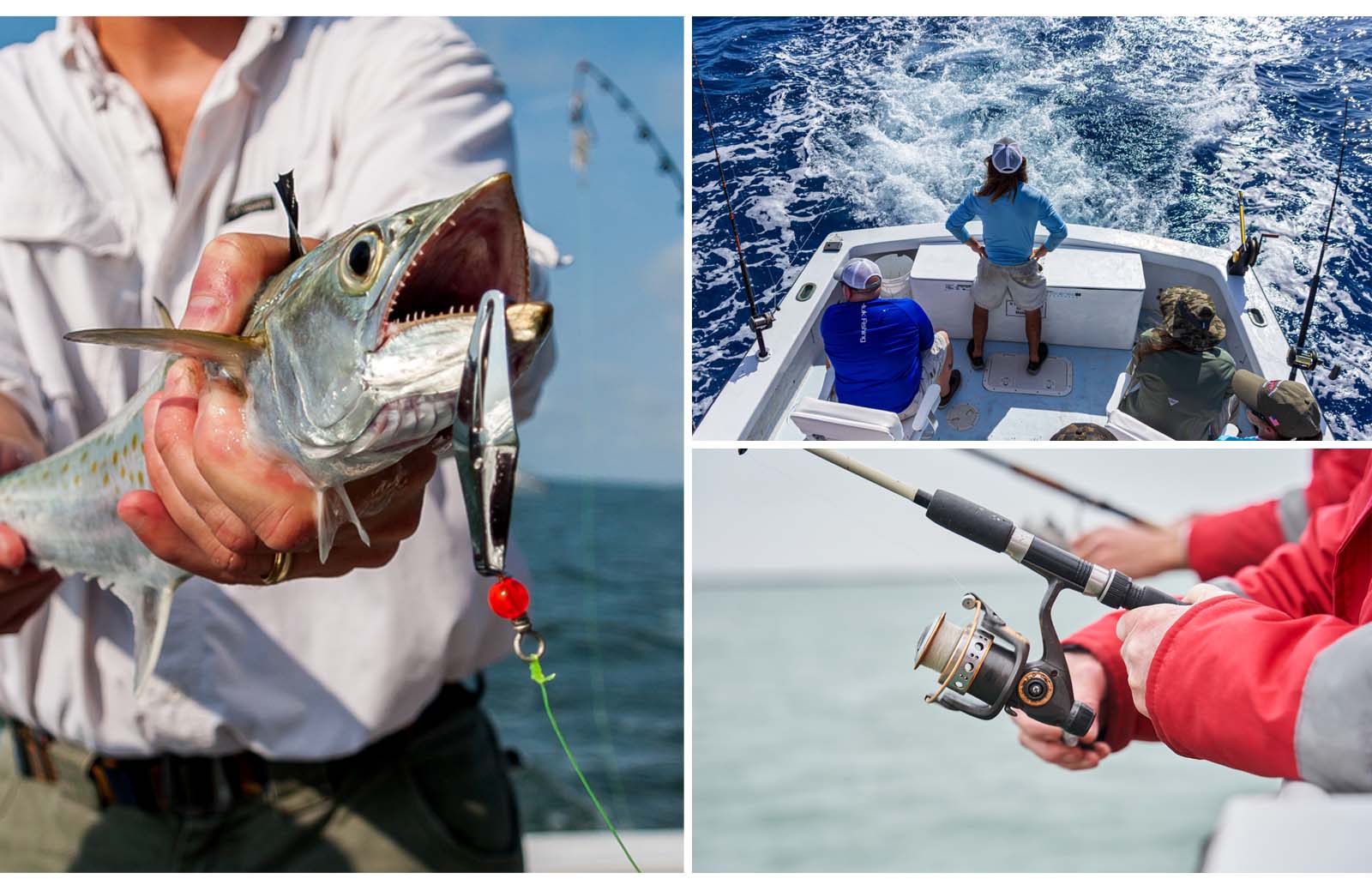How to Become a Fishing Guide
June 11, 2021

Love to fish and know your local waters like the back of your hand? Love meeting new people, too? Then you might be an excellent fishing guide! If you feel like you are the master and commander of your vessel and know precisely where to find every type of fish, rise to the challenge and become a fishing guide.
While essential, becoming a fishing guide is much more than having a heavy-duty fishing cooler on board. You need the proper training, licenses and more. It’s a commitment, to say the least. But if you are serious about learning how to become a fishing guide, here are the requirements and what you should expect.
Become the Expert
A good fishing guide knows the local waters, plain and simple. So if you want to be a fishing guide, go out on the lake or ocean each and every day and keep a log. Pay attention to everything that might trigger fish, from weather to tides and the time of day.
Before long, you’ll know exactly where to find the best catch, which will impress your anglers once you invite passengers on board.
Expect Competition
If you want to become a fishing guide, there’s one thing you should know: You will have competition. Chances are, there are already a lot of anglers on the water already. Plus, like you, many anglers obtain their “Captain” or “Guide” title. So, as you start out guiding fellow anglers, try to set yourself apart and offer something different.
For example, you could offer night fishing cruises. Just be sure to have enough headlamps on board for your passengers and know the rules of nighttime navigation. If you have a knack for photography, take photos of your passengers on their fishing excursion, keeping your gear protected in a camera hard case.
Training Courses
To take passengers out on the water, you will need to have the proper license. This means learning and passing exams to acquire the permit you need, ensuring the safety of everyone on board. Here are two main courses for licenses you should consider:
Operator of Uninspected Passenger Vehicle (OUPV) License
The Operator of Uninspected Vehicle License, also called the “six-pack” license, allows captains to carry up to six passengers, plus crew. This license is the easiest to obtain. You can expect the six-pack course to run anywhere from $500 to over $1000, depending on the instructor and how thorough it is.
The Master's License
Once you obtain an OUPV license, you can then apply for a 100-ton Master’s License. The Master’s License essentially allows you to captain a vessel for hire (100 tons), which allows more than the limited six passengers of the OUPV permit. Typically, this means you can charter many larger fishing vessels and party boats. For the Master’s course, expect to pay $900 to $2,000 and sit for 80+ hours of instruction.
Logged Time and the Local Licenses

Once you have taken the courses, only then will you be on your way to getting your captain’s license to become a fishing guide. After you complete the course, you will then need to log enough time on the water and have someone sign as a witness. Then, you will be able to apply for the license and submit an application, which costs around $150.
In addition to the application fee, you will also need to consider the following to prove you are in good health and capable of guiding passengers on a vessel:
- CPR/First Aid card
- Physical exam
- Eye exam
- Drug test
State or County Commercial Vessel License
Besides the courses mentioned above, licenses and basic First Aid, you will need a license for your state or county. Check with your local laws, as you may need to apply for a commercial vessel license also.
Liability Insurance
Aside from courses and licenses, you also need to consider liability insurance. You are running a business, after all, and boating can be dangerous.
Stock Up on Tackle and Supplies
While it’s an upfront cost, you want to give your passengers an amazing experience out on the water. While many passengers may come to you on a whim, without rods and tackle, be sure to have everything they need. Give yourself a $200 allowance per rod and reel when just starting out. You can always upgrade or make replacements down the road when business takes off.

SIGN UP FOR EXCLUSIVE OFFERS
Sign up for our newsletter and get exclusive access to new product launches, special offers and much more.
RELATED BLOGS














